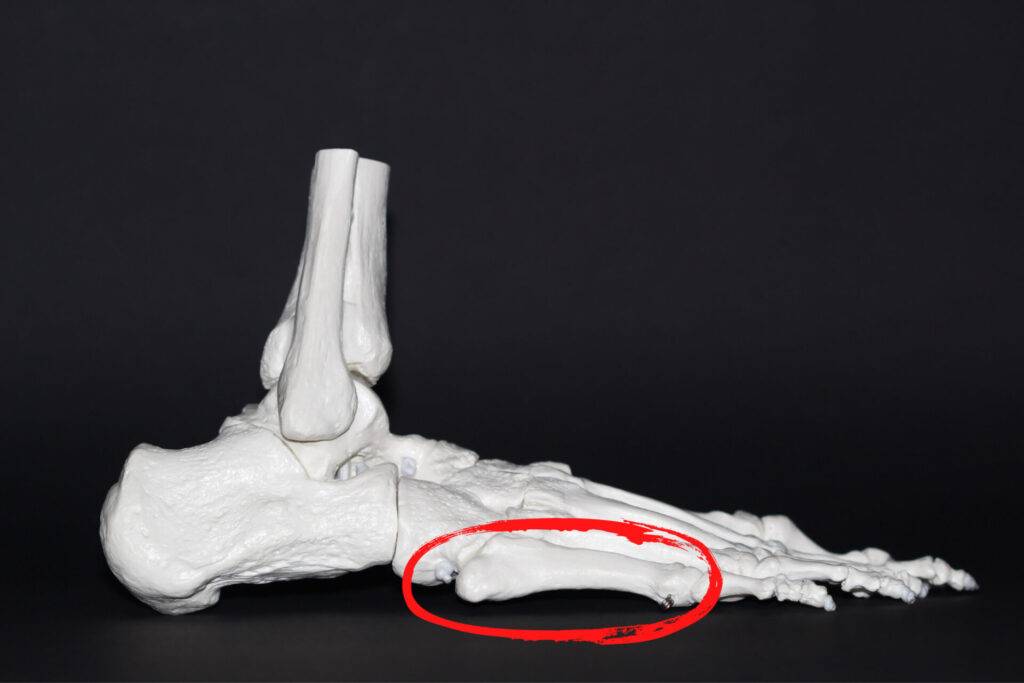What is 5th Metatarsal Fracture? Here are the symptoms and types of this condition
5th metatarsal fractures are a common injury often associated with ankle sprains. The fracture can involve the base, 5th tarsometatarsal joint or the shaft of the metatarsal. The 5th metatarsal bone is the long bone located on the outside of the foot. It has a base (tuberosity) where the peroneus brevis tendon and also lateral plantar fascia attach, a long shaft and a head where it meets the 5th toe.
Types of 5th Metatarsal Fracture
There are several types of 5th metatarsal fracture. They usually occur due to twisting injury. Also, most heal without complication but can take time.
- Base (Tuberosity) Avulsion Fracture – Zone 1
In an avulsion fracture, a piece of the bone is pulled off the main portion of the fifth metatarsal by the attaching plantar fascia or tendon. These are the most common 5th metatarsal fracture. In addition, they are a cause of persisting pain after what is thought to be an ankle sprain. Treatment is also protection in a stiff sole shoe or low “moon-boot” until comfortable. Surgery is rarely required, unless the avulsed fragment is very displaced and not healing.
-
Jones Fracture – Zone 2
This fracture occurs in an area between the base and shaft of the fifth metatarsal which has a limited blood supply and is also under tension stress on standing (see image). This injury heals slower than a base avulsion fracture. It sometimes does not heal or re-fractures after healing. Also, surgery may be recommended early in active people.
- Shaft, Head and Neck Fractures – Zone 3
Shaft fracture (“dancer’s fracture“) are spiral fractures look bad but heal without surgery. Surgery can also actually make them heal slower. Neck as well as head fractures are uncommon. Moreover, midshaft fractures usually result from trauma or twisting.
5th Metatarsal Symptoms
- pain,
- swelling
- tenderness
- and bruising over the outer foot
- Difficulty walking
Are you experiencing these symptoms? One of our podiatrist can assist and then help what treatment options are best for your child. ✅
Schedule an appointment here or you may call us at 44 (0) 207 101 4000. 📞
We hope you have a feetastic day! 👣☀️
-The Chelsea Clinic and Team




